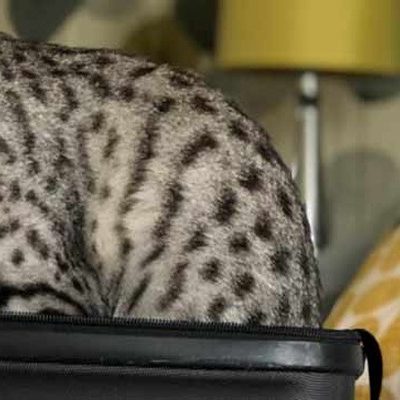Pets play a significant role in our lives, providing companionship, comfort, and love.
Given that 45% of the population have a pet, it is not surprising that difficult issues frequently arise during separation when deciding what should happen to the family pet.
At Monan Gozzett LLP, we understand the emotional and practical challenges that arise when determining the fate of family pets during this difficult time.
In this blog post, we will explore the legal framework surrounding pet custody in divorce and provide guidance on navigating this complex issue.
Divorce: Treating Pets as Property
Many of our clients are surprised to learn that there are no special rules for dealing with a family pet during divorce or separation in England and Wales.
Instead, the animal will be treated as personal property, and the dispute will be dealt with using the same principles that will apply to ordinary assets such as the family car or furniture.
The Court does not consider the animal's welfare or needs when allocating it to either one party or the other.
Rather a court will consider who is the "rightful owner" of the animal, looking at matters such as who purchased the pet, who financially maintained it and whether it was a gift.
For most pets, the financial aspect of looking after them is relatively low. Therefore, this won't be a consideration.
However, some animals, such as horses, come with significant maintenance expenses, and this will need to be factored in when considering which party they should be assigned to.
This uncertainty can intensify the difficulties experienced during separation, which is already a stressful and emotional time.
The pet can be used as a bargaining chip, resulting in lengthy, drawn-out negotiations.
Contrasting Approaches: The Alaska Example
This is not the position taken in all jurisdictions.
In contrast to the position in England and Wales, the American state of Alaska has adopted a different approach, treating pets more like children.
Judges there are now required to consider "the well-being of the animal" when deciding which party should get custody.
They also have the power to grant separating couples joint custody or visitation rights.
Pet-Nuptial Agreements
From the outset, we encourage clients to consider what should happen to a pet in the event of separation with a "pet-nuptial" agreement, just as you would consider a pre-nuptial agreement before marriage.
This can set out who "owns" the pet and identify who will continue to be responsible for the pet if the relationship breaks down.
Pets And Divorce: Mediation and Out-of-Court Resolutions
If an agreement was not entered into, we support and encourage clients through mediation to resolve the matter.
A court will simply assign ownership of the animal to one party or the other.
An out-of-court agreement will allow for more opportunities to be creative with the arrangements.
For example, you may be able to achieve some "shared care" arrangement.
We are conscious of the importance of our clients' bond with their animals, and we are sympathetic when supporting our clients in resolving this sensitive issue.
Pets And Divorce: Summary
When navigating the complex terrain of divorce or separation, the question of pet custody can add additional layers of emotional and logistical challenges.
Although the legal framework in England and Wales treats pets as property, there are proactive steps individuals can take to protect the well-being of their pets during this process.
By considering pet-nuptial agreements and pursuing mediation, couples can work towards finding mutually agreeable solutions that prioritize the best interests of their beloved family pets.
At Monan Gozzett LLP, we are dedicated to providing compassionate guidance and legal expertise to help our clients through these difficult times.
Contact our Family Law Team today to discuss any pet-related issues you may be having with a divorce or separation.
If you would like to speak to our expert legal team about this, or any related subject then please contact our team by phone on 0207 936 6329, Email or by completing our Quick Contact Form below.
